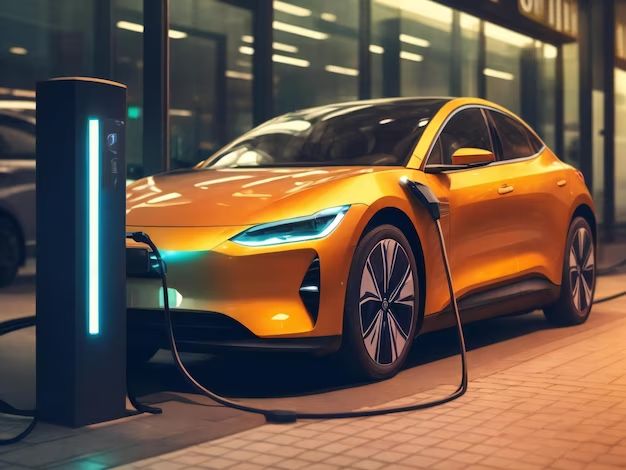With Tesla being one of the most popular electric vehicle brands today, many prospective buyers wonder if routine maintenance like oil changes are still required. Since Teslas and other electric vehicles don’t have a traditional internal combustion engine, they don’t need regular oil changes like gas-powered cars.
Page Contents
How Tesla engines work
Tesla vehicles are powered by electric motors instead of gas engines. The motors are powered by a battery pack that gets charged by plugging the car into an electric charging station or home charger. This eliminates the need for gasoline entirely.
Without a gas engine, there is no need for engine oil. Engine oil lubricates the moving parts inside a combustion engine and also helps remove heat and debris. Electric motors have very few moving parts and don’t generate nearly as much heat.
Do Teslas require any fluid changes?
While Teslas don’t need oil changes, there are still a few other fluid changes recommended by Tesla at certain mileage intervals:
- Brake fluid – Replace every 2 years
- Battery coolant – Inspect every 4 years or 50,000 miles
- Air conditioning refrigerant – Inspect every 4 years
The brake fluid needs to be changed periodically because it absorbs moisture over time which decreases its effectiveness. The battery coolant helps regulate battery temperature and should be inspected periodically. The A/C refrigerant level may need to be topped up for optimal performance.
Are there any exceptions?
The only exception would be in a Tesla vehicle equipped with the optional air suspension system. These vehicles have air springs that utilize a compressed air system. Part of that system includes an air dryer that uses a desiccant to remove moisture from the air.
The desiccant material needs to be periodically replaced, typically every 3 years. So Tesla vehicles with air suspension do have a small maintenance item that could be analogous to an “oil change.”
Basic maintenance is still required
While oil changes are eliminated, electric vehicles still require basic maintenance to keep things running properly. Tesla recommends the following maintenance items:
- Rotate tires every 6,250 – 10,000 miles
- Replace cabin air filter every 2 years
- Flush brake fluid every 2 years
- Check wiper blades, tire pressure, and fluid levels periodically
- Perform wheel alignments as needed
Following the recommended maintenance schedule helps extend the life of wear items like tires and brakes. Cabin air filters also need regular replacement to maintain HVAC performance.
Comparison to gas-powered cars
To highlight the differences in oil change requirements, here is a comparison between a Tesla Model 3 and a gas-powered BMW 3-Series:
| Maintenance Item | Tesla Model 3 | BMW 3-Series |
|---|---|---|
| Oil Changes | None | Every 10,000 miles approx. |
| Brake Fluid Flush | Every 2 years | Every 2 years |
| Tire Rotation | Every 6,250 – 10,000 miles | Every 6,250 – 10,000 miles |
| Air Filter | Replace every 2 years | Inspect periodically, replace as needed |
While both vehicles share some common maintenance needs, the Tesla has the significant advantage of no oil changes. This reduces maintenance costs and hassle for owners over the life of the vehicle.
Cost savings from lack of oil changes
Exactly how much money can a Tesla owner save without oil changes? Here are some average costs associated with oil changes:
- Synthetic oil change – $80
- Filter replacement – $15
- Shop fees – $10
Based on these figures, the average oil change costs around $105. For a gas car with a 10,000 interval, that’s over $700 in oil change costs every 50,000 miles. Spread out over 100,000 miles, an average driver would spend $1,400 just on oil changes.
By never having to change oil, a Tesla driver saves at least $1,400 over 100,000 miles. The savings could be even greater for larger gas-powered vehicles that require more frequent oil changes like full-size SUVs and trucks.
Other electric vehicles
While Tesla is the most popular, there are other electric vehicle options that also do not require oil changes:
- Nissan Leaf
- Chevy Bolt
- Hyundai Kona Electric
- Kia Niro EV
- Volkswagen ID.4
- Polestar 2
- Rivian R1T and R1S
Essentially every fully electric model from major automakers follows the same formula – no engine oil needed. So potential EV buyers can choose from a wide selection of models that offer the oil change savings benefit.
Conclusion
In summary, Tesla vehicles and other electric cars do not require regular oil changes. This eliminates the ongoing cost and hassle of frequent oil changes, which can save an average of $1,400 dollars over 100,000 miles of driving. Of course, some periodic maintenance items are still required, but the savings from no oil changes is a significant perk of electric vehicle ownership.
